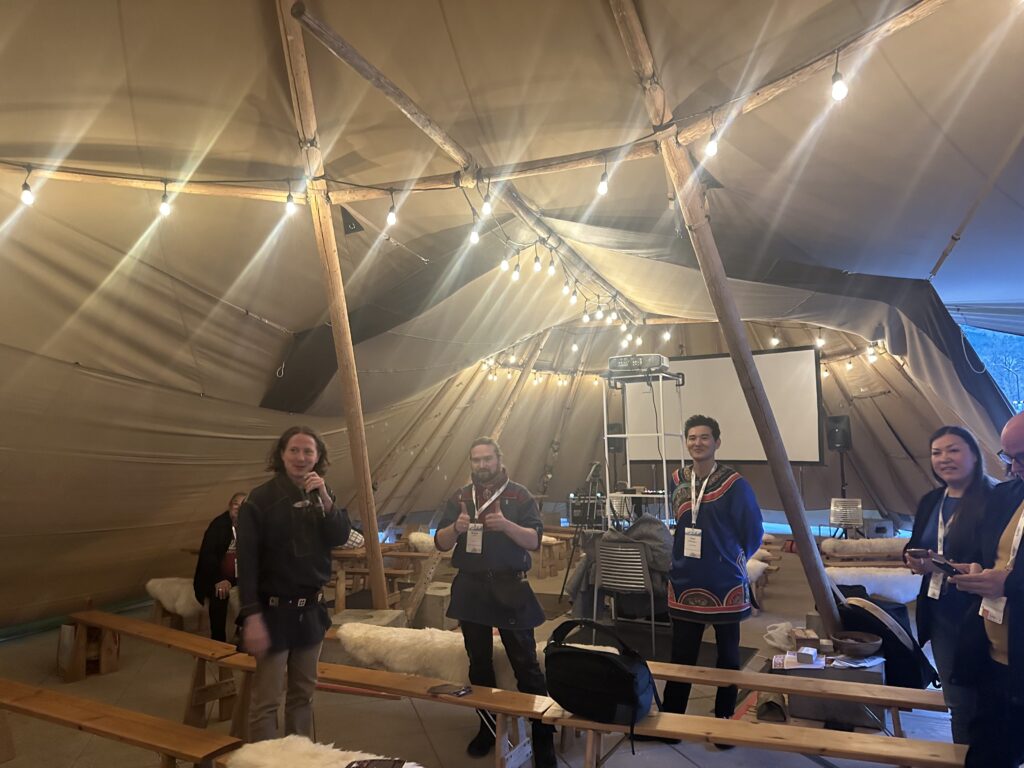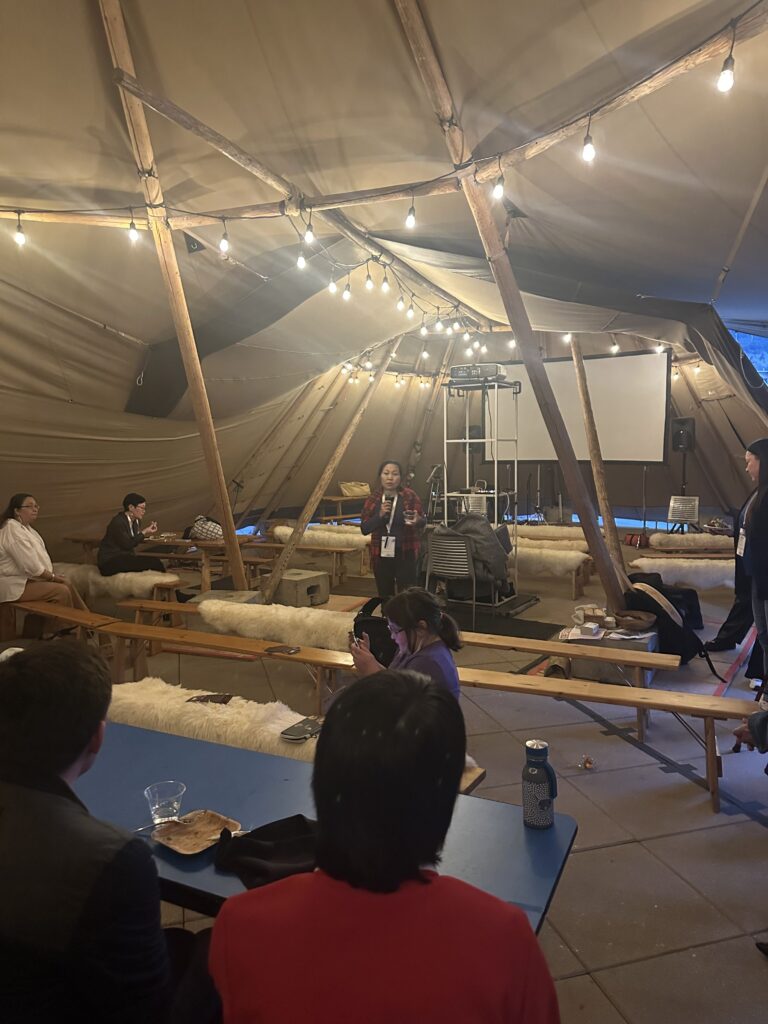Potluck — A Gathering of Voices and Cultures
The Potluck event, organized by Olga Shaglanova and Vera Kuklina on March 26, 2025, brought together participants of the Arctic Science Summit Week (ASSW) at the Indigenous Pavilion in Boulder. Supported by the NNA-CO Arctic Observing Network Convergence Working Group, the event served as a shared space for reflection, cultural exchange, and future collaboration among Indigenous knowledge holders, scholars, and researchers from across the Arctic and Sub-Arctic regions.
Concept and Purpose
The Potluck project was designed as a knowledge-sharing gathering—a space where participants could exchange experiences, discuss emerging challenges, and explore new forms of collaboration across disciplines. By uniting Indigenous scholars, community representatives, and members of the Arctic Observing Network, the event highlighted Indigenous perspectives on environmental change, resilience, and sustainable futures.
The gathering also emphasized the importance of social and cultural connections—bridging communities through shared traditions, songs, and stories. Participants reflected on how cultural practices and intergenerational knowledge can inform Arctic research and governance, strengthening efforts to protect Indigenous rights and cultural heritage amid a changing climate.
An Evening of Shared Voices
The event became a vivid celebration of community, sound, and taste. All participants were active contributors to the potluck—a gathering that combined knowledge and food sharing with multiple forms of creative engagement. Traditional dishes from different regions were shared, while Bayarbaatar Bavuudorj performed Mongolian throat singing, filling the space with resonant, ancestral tones.
As the evening unfolded, songs from Sámi, Buryat, Mongolian, Sakha, Dukha, and Inuit traditions softly intertwined, embracing the crowd in a shared rhythm. Participants sang and danced together—some in unison, others following the distinct beats of Sakha, Buryat, or Unangax̂ dances. In those moments, the boundaries between cultures seemed to dissolve, replaced by a profound sense of kinship and connection.
Perhaps we had never felt as related as we did then—united by music,
movement, and the warmth of shared understanding
*A potluck is a communal meal gathering where each guest or participant brings a dish to share with others. The term combines the words “pot” (referring to food) and “luck” (suggesting whatever happens to be available).
Historically, the concept dates back to 16th-century England, where “pot-luck” described an unplanned meal offered to an unexpected guest—the “luck of the pot,” meaning whatever was already cooking. In its modern North American sense, the potluck supper became popular in the 20th century, especially in community, church, and academic settings, as a way to share food, foster social bonds, and celebrate diversity. Each participant contributes a dish—often homemade—resulting in a varied, collective meal that reflects the community’s spirit of generosity and cooperation.



